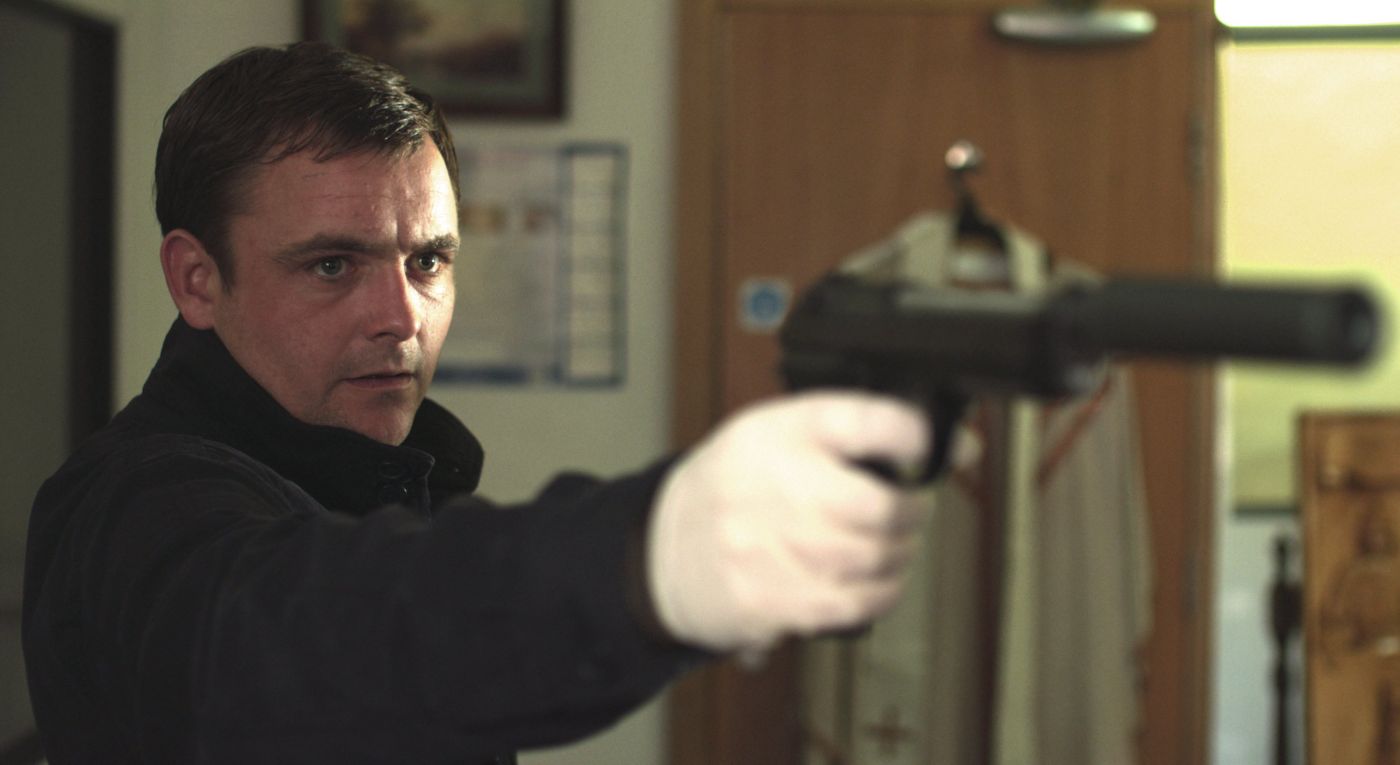
“The whole idea of genre and categorising films is a critic’s construct. For me, I just try and make stories and see where they go, but there’s nothing wrong with horror; there’s nothing wrong with romantic comedies.”
– Ben Wheatley
In a relatively short period of time English filmmaker Ben Wheatley has proven to be a prolific and unpredictable filmmaker. Initially carving a name for himself as an animator and maker of several short films, including one of the earliest viral videos, “Cunning Stunt” (which he made with Rob Hill, whom he’d later make Down Terrace with)––a Jackass-esque pratfall that landed over 10 million views.
This surprising success would lead Wheatley to a string of well received and occasionally profitable adverts and idents before bringing him to TV comedy shows like Channel 4’s Modern Toss and the BBC’s Time Trumpet, Comedy Shuffle, The Wrong Door, and Ideal during the mid-to-late 2000s.
His time on low-budget but high concept television shows helped prepare Wheatley to move confidently into feature films providing him with, amongst other skills, a DIY work ethic as well as meeting and befriending a wide and diverse repertory of actors and technicians that he’d later collaborate with.
Beginning with 2009’s Down Terrace, Wheatley has quickly amassed a distinct and distinguished body of work as well as a reputation as a firebrand due to the challenging and exciting nature of his films. Few contemporary filmmakers have enjoyed the prestige, the provocation, and the reputation that Wheatley has.
I admit outrightly that I’m a huge fan of Wheatley’s work and to my mind he’s yet to make a bad film and by that omission the notion of ranking his films “from worst to best” suggests that some of his movies might be rubbish, well allow me to confirm that they most assuredly are not.
During the press junket for 2015’s High-Rise I had the pleasure of interviewing Wheatley and I found him to be not just an engaging artist, but a personable fellow of tireless wit, lively conversation, and possessing a contagious love of cinema that further underscores his own trenchant, imaginative, and somewhat thorny body of work.
When I asked Wheatley why so many of his films have a tendency to haunt the viewer and follow them home from the cinema afterwards he smiled, laughed generously and said: “The movies I like are movies that make me think. And if they’re movies I have to unpack at the time, I like that. And I like them to have some legs and some longevity.”
Presented here in clickbait fashion is a look into Wheatley’s six feature films. Please consider that the order they’re presented in is somewhat arbitrary, partially determined by aggregated critical consensus and fanboy proclivity. You should see all of his films, rank them yourself, and engage in debate of their many merits afterwards, for Wheatley’s are the sort of rewarding movies that have you doing that anyway. Enjoy!
6. Free Fire (2016)
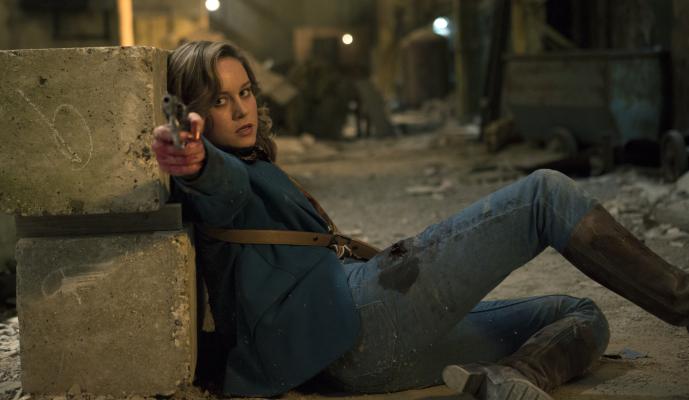
An ultra-violent star studded ensemble piece, Free Fire is ostensibly one long, priceless, and protracted gunfight encompassed inside a squalid, left in the lurch warehouse in 1970s Boston. This merrily nihilistic chamber piece is perhaps best described as a reimagining of Reservoir Dogs as if it were a Marx Brothers comedy.
Amongst the impressive international cast is Sharlto Copley, Armie Hammer, Oscar winner Brie Larson, Cillian Murphy, Jack Reynor, and Michael Smiley, each a different description of undesirable all brought together under the pretext of an arms deal about to turn sour.
Wheatley, co-writing with his regular writing partner, wife , and muse, Amy Jump, along with his usual cinematographer Laurie Rose present a tense, comic, artful, and often luridly distressing crime caper with double-crosses, great dialogue, flashy fight choreography, gun culture causticity, a crackingly cool Geoff Barrow (Portishead) and Ben Salisbury soundtrack, and enough unpredictability to keep you postulating right up until the film’s final minute.
Like the manky sting of the miry stray syringe that finds itself embedded into unlucky Frank (Smiley) as he tries to slither away, Free Fire will stay with you, a cinematic inoculation against tedium. Recommended.
5. Down Terrace (2009)
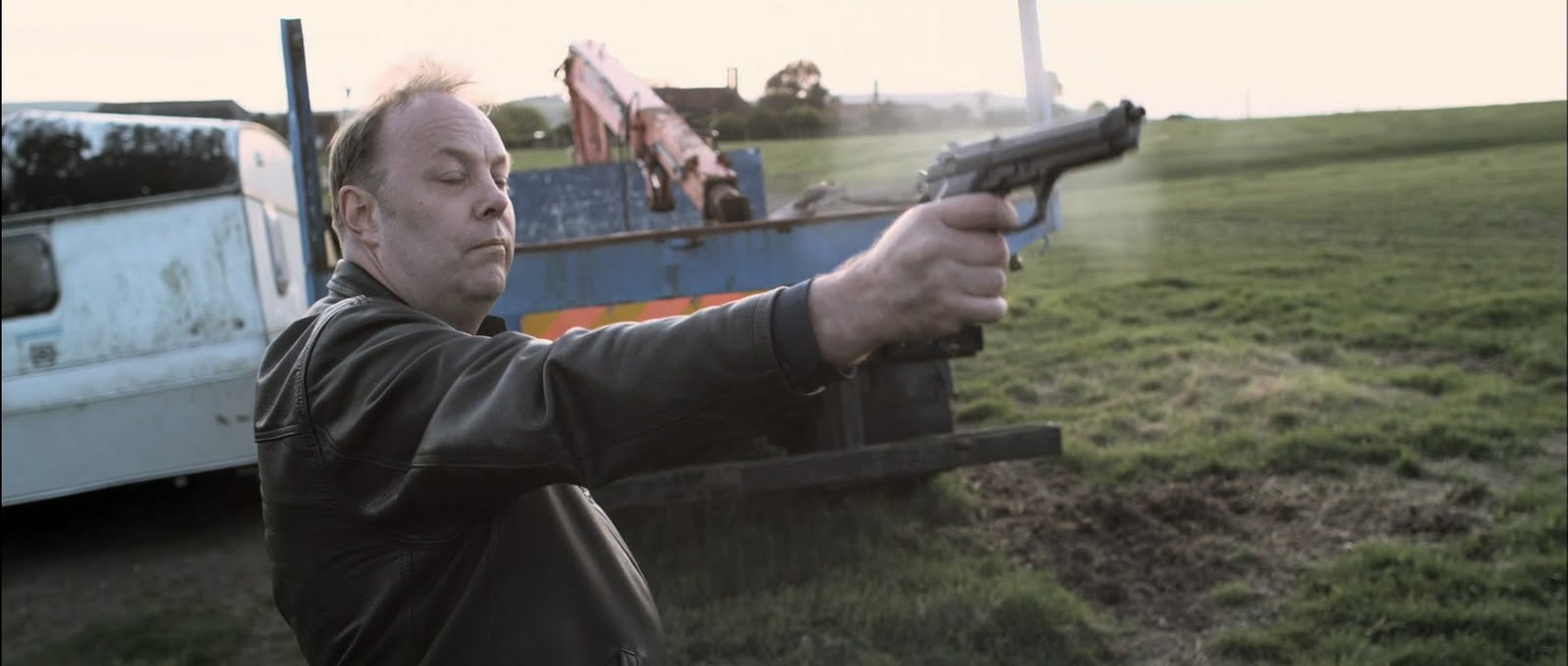
Brutally witty and utterly original, Down Terrace is an astonishingly assured first feature. A crime film that came together quickly and on a microbudget––the eight day shoot was made primarily in star Rob Hill’s house––the modest fundamentals behind the movie mislead its unconventional approach and savage causatum.
Returning to their unassuming household at Down Terrace in Brighton after a joint stint in jail, Bill (Robert Hill) and his son Karl (Robin Hill) seek a pleasant homecoming and the normalcy that might go along with it. But more importantly, Bill with his wife Maggie (Julia Deakin) assisting him, want to uncover the rat in his criminal operation and this will bring about betrayal, bloodshed, recrimination, and something unspeakable along with it.
Now none of that sounds like a prescription for hilarity but leave it to Jump’s genius screenplay and the comedic gifts of Wheatley’s talented cast to inject an odd levity and drollery to the carnage, the kitchen-sink melodrama, and the mafiosa tropes.
Uniformly hilarious and horrifying, Down Terrace is a great introduction to Wheatley and also brilliantly suggests the elation that will follow in his subsequent films.
4. High-Rise (2015)
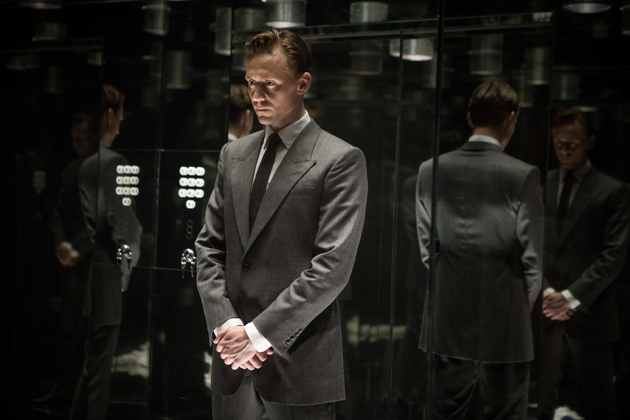
Adapted from JG Ballard’s “unfilmable” and stridently subversive 1975 sci-fi novel, High-Rise, the film reveals the doomed denizens of a 40-storey luxury building who, over the course of three scant months, revert to ferocious barbarity, explore Freudian textbook extremes, and propound poetic self-destruction.
“It was great to have so much control of our environment,” Wheatley told Taste of Cinema, elated to finally be making a film with a considerable budget, and some A-list stars, along with his usual allowance to unleash a feast of visually dazzling and disturbing panoply. “I got to exercise a lot of muscles I hadn’t shown in my cinema work.”
One of the largest scale Wheatley films to date (Free Fire had a larger budget but much of that went to the recognizable ensemble actors), it was liberating for the filmmaker to, after several small-scale projects, stretch his legs in a studio and play around with Techno-cranes, gib-arms, steadicams, and all the stuff he previously couldn’t actually afford. And it was all put to great use in a film that, while as divisive as much of his previous work––perhaps High-Rise contains one too many orgies for the atypical audience––was hailed by Varsity’s Kate Wilson as a “masterpiece” (though in contrast the uptight critic over at Reel Talk nastily spewed that it was “just about the looniest garbage I have seen in a long while”).
A dystopic dark comedy, High-Rise serves Ballard’s prose frightfully well, with props yet again to Jump’s faithful refitting and athletic script, not to mention a fearless performance from Tom Hiddleston as the not always likeable or relatable lead, Dr. Robert Laing.
Visually disturbing and hard-boiled vintage soon spurs an absurd cinematic carnival of arraigned values, hamster cage clichés, standing aphorisms, and more. Drugging, boozing, orgies, beatings, lootings, rape, and murder all soon ensue. It’s no wonder some people can’t enjoy this uncompromising showpiece.
A gloriously downbeat pageant, High-Rise rolls out as a tour de force from a fearless filmmaker.
3. A Field in England (2013)
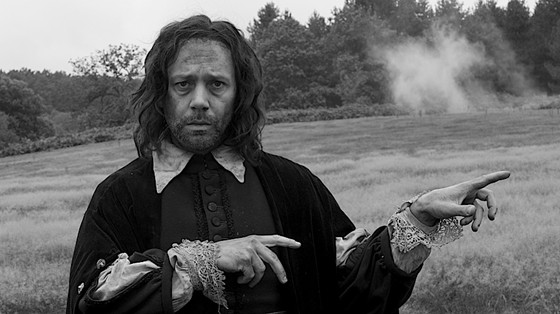
Blurring the lines between dream and reality is a right-hand aspiration for Wheatley, and his fourth feature, the incomparable A Field in England, exemplifies this to the nth degree. Here I have to happily concede, this is my favorite film so far in the Wheatley canon, but it’s almost never the first film of his I recommend.
It’s an acquired taste that truly only the most adventurous and somewhat crackpot cineastes would cherish. I don’t mean that to sound elitist, there are many brash, broad strokes and artful flourishes that any film fan could admire here, but there are also just as many rabbit holes and Gordian knots to navigate, too.
A Field in England is a black comedy masquerading as an arthouse horror film set in mid-17th century England. It sobs and squirms like the bastard child of Jim Jarmusch’s Dead Man (1995) and Michael Reeves’ Witchfinder General (1968), but even those comparisons don’t do the film much justice.
Jump outdoes herself with a literate and completely corrupt screenplay that follows Whitehead (Reece Shearsmith in a brilliant performance) as he absconds from a demonic alchemist named O’Neill (Michael Smiley, excellent) amidst a bloody English Civil War battle. Cursed and accompanied by a trio of deserters this ill-starred crew, high on psilocybin mushrooms, are soon at the mercy of O’Neill.
Cinematographer Laurie Rose shoots a monochrome world of creepy close-ups and other odd and ominous tricks as the trippy pastoral mise en scène mutates into a Grand Guignol chamber of horrors. It’s an inspired, utterly loopy, psychotropic Möbius strip that embraces moral ambiguity, resists tidy resolutions, and is more lively and enjoyable than it perhaps ought to be. It’s also the perfect midnight movie if you’re brave enough to visit it.
2. Sightseers (2012)
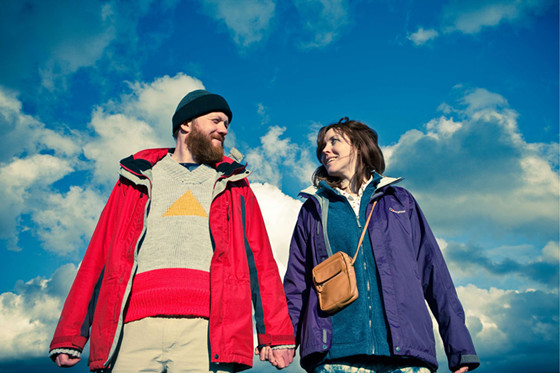
Sightseers lands like a lightning bolt, a bloody tale of a cross-country road trip that deforms into something strangely enough I’ll choose to describe as a light hearted killing spree. The first run of the Sightseers script was written by co-stars Steve Oram and Alice Lowe before Jump had a go and made it her own. But that said, it’s still a film that very much feels off the cuff, as if it were being filmed as it were happening in real-time perhaps.
“Well,” shared Wheatley with Taste of Cinema, “there was a massive amount of improvisation because those guys (Oram and Lowe) are so fucking good!”
The premise of the film, quickly stated, is an eccentric couple, Tina (Lowe) and Chris (Oram), still in the budding stages of their relationship, decide upon a cross-country road trip and soon devilishly decide to start offing everyone who annoys them and gets on their nerves.
Co-written and co-editing by Jump, Wheatley is always quick to emphasize his wife’s contribution to their films. “I think it’s very telling,” Wheatley said, “that Sightseers is about a man who has a passion, and introduces a woman into a certain bit of behavior and the woman becomes much better at it then him and then has to get rid of him. My films are very personal, it’s not a coincidence that there are child men and strong women in them.”
Sightseers is an outstanding and relentless comedy borne of spite and it might even be your favorite film on this list. Fully endorsed.
1. Kill List (2011)
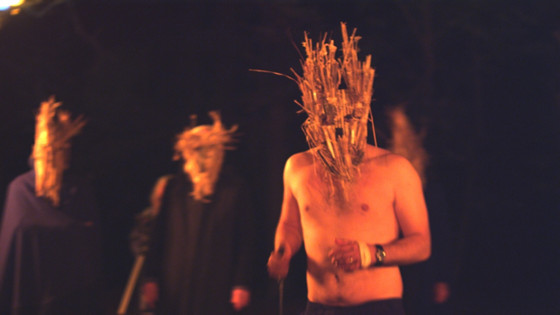
Of all the films that Wheatley has made it must be said that 2011’s Kill List is the most flat out upsetting, and the most enervating, as the movie gradually morphs into all out horror. A relentless and tense thriller that subverts expectation, Kill List benefits from a deliberate slow burn start, establishing a mood and a tone that eventually and rewardingly ratchets tension and builds anxiety to the ultimate mad rush.
The story involves Jay (Neil Maskell) and Gal (Michael Smiley), longtime pals and former soldiers who are now contract killers. Little do either know that a new assignment they’ve agreed upon is going to lead them to the darkest possible place imaginable.
As the plot takes many unpredictable turns, humor is present to diffuse the mounting mental pressure, and Wheatley works the audience like a master, making us anxious, and uneasy at every sharp turn and nasty twist. The last half hour is all edge-of-your-seat suspense and the closer is as unforgettable as it is ultimately inexorable.
“Andy Stark, my producer, said to me, ‘make a horror film’,” Wheatley explained to Taste of Cinema. “I thought, if I’m gonna make a horror film I’m gonna make something that’s truly as fucking horrible as possible. So when I wrote the script I made a list of my nightmares. My son, who was three or four at the time, was tied up in that, and I was terrified at that kind of aspect of fatherhood and so put that in. I had these reoccurring nightmares about cults since I was a little kid so I put that in as well.”
Few British thrillers this century have been as atmospheric, effective, and artfully crafted as Kill List. Miss this film at your peril, but don’t see it alone. You’ve been warned.
Author Bio: Shane Scott-Travis is a film critic, screenwriter, comic book author/illustrator and cineaste. Currently residing in Vancouver, Canada, Shane can often be found at the cinema, the dog park, or off in a corner someplace, paraphrasing Groucho Marx. Follow Shane on Twitter @ShaneScottravis.